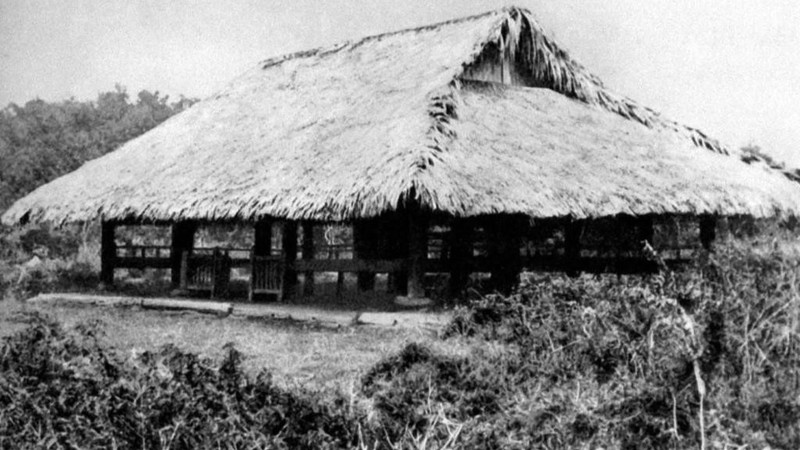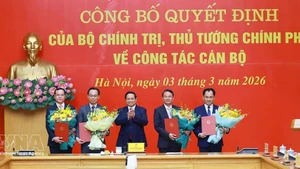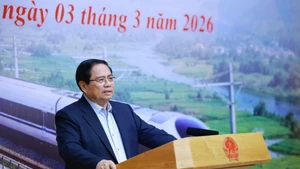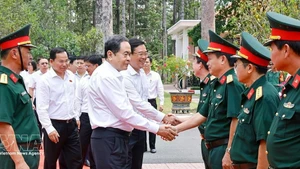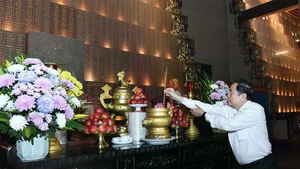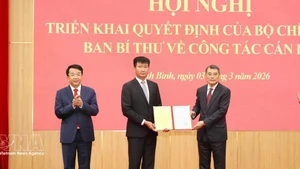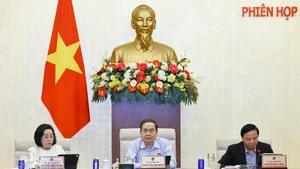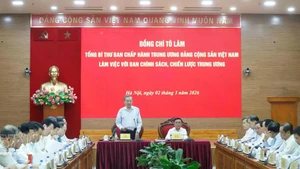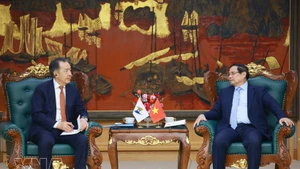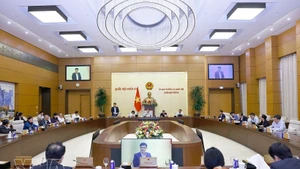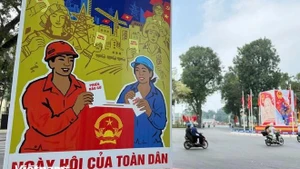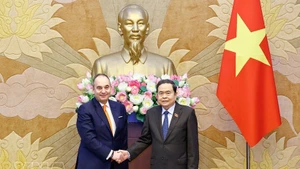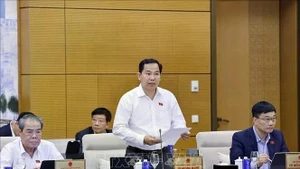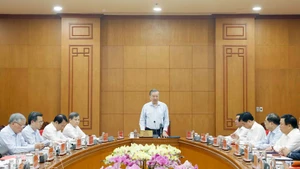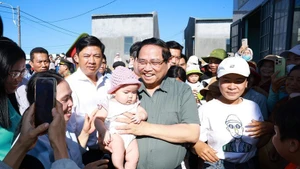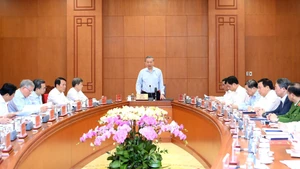He stressed that the meeting should be held immediately and should not be prolonged: “We must seize every second and every minute. The situation will develop rapidly. We cannot miss this opportunity.”
Shortly thereafter, the National Party Conference convened at Tan Trao (Son Duong, Tuyen Quang). The conference was attended by representatives from local party committees within the country, some representatives active abroad, as well as delegates from the Liberation Zone and the war zones.
Responding promptly to the intense situation, after discussions, the delegates at the conference affirmed: “The conditions for the uprising in Indochina are favourable,” “Japanese troops have disintegrated and lost morale; the Vietnamese collaborators with the Japanese are terrified,” and “The entire nation is enthusiastically awaiting the uprising to reclaim national independence.”
Based on an accurate analysis of the situation, the delegates unanimously agreed that the Party must promptly launch and lead the entire people in a general uprising to gain complete independence.
The conference established three principles to ensure the Party’s leadership for a victorious general uprising:
a) Concentration — concentrating forces on the main tasks.
b) Unity — unity in all military and political aspects, actions, and command.
c) Timeliness — acting promptly without missing opportunities.
The conference outlined the operational guidelines: “Immediately seize places where victory is assured, whether cities or villages,” “military and political actions must be integrated,” “dismantle the enemy’s morale and induce their surrender before fighting,” “seize key bases (including urban centres) before the Allied forces arrive,” and “establish People’s Committees in areas under our control.”
Three major slogans for the struggle were set forth:
“Oppose invasion!
Complete independence
People’s government!”
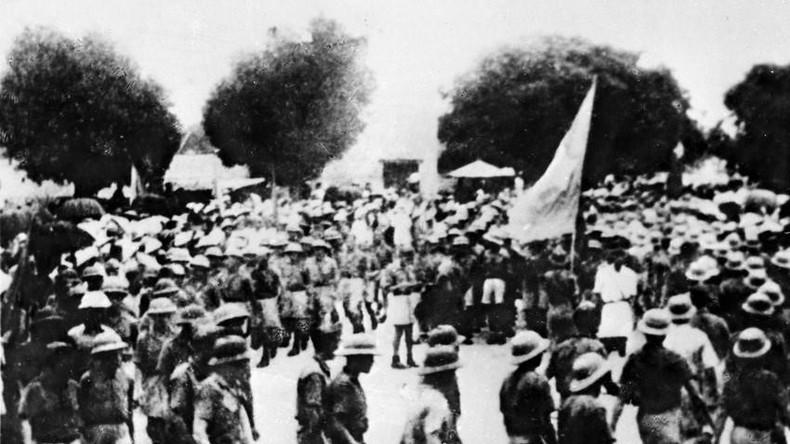
In addition to deciding the urgent primary task of leading the general uprising to seize power, the conference also devised domestic and foreign affairs tasks to be implemented after achieving victorious power.
Regarding domestic affairs: The conference approved the ten major policies of the Viet Minh Front, considering these as the fundamental and immediate policies for the entire Party and people’s activities.
The conference emphasised communication, education, and mass organisation work — with a particular focus on communication and education within the Viet Minh Front’s affiliated organisations — as well as the prioritisation of economic tasks, especially agricultural production.
Regarding foreign affairs, the conference clearly stated the policy of thoroughly exploiting conflicts among France, Britain, the US, and Chiang Kai-shek to avoid having to simultaneously confront multiple enemies alone; and garnering the sympathy and support of the Soviet Union and the Allies to counter the schemes of restoring French imperialist dominance in Indochina and the Chiang Kai-shek’s invasion attempts. While emphasising the importance of seeking Allied support, the conference stressed that “the key to victory on the foreign front would ultimately be our own strength that will decide the victory between us and the Allies.”
To ensure the Party’s leadership towards a successful general uprising, the conference emphasised the tasks of training cadres, as well as recruiting party members by electing comrades Nguyen Chi Thanh, Chu Van Tan, Vu Anh as official members, and Vo Nguyen Giap as an alternate member of the Party Central Committee.
On the same day, rural communes and districts in most provinces in the Red River Delta and North Central regions sequentially rose up to seize power.
In Quang Ngai, the ruling apparatus was confused and wavering; pro-Japanese political organisations were fragmented and largely paralysed; the intermediate social strata inclined towards the revolution; and revolutionary forces continuously increased, ready to rise.
The time for the uprising had come and that it was urgent to mobilise the masses to rise in armed revolt to overthrow the entire enemy government and seize power for the people.
Upon receiving news of Japan’s surrender to the Allies, although the order to rise had yet to be received from the Party Central Committee, the Quang Ngai Provincial Standing Party Committee, following a plan drafted in June, convened an extraordinary meeting at its headquarters in Pho Nhat Village, Mo Duc District, at noon on August 14.
The meeting concluded that the time for the uprising had come and that it was urgent to mobilise the masses to rise in armed revolt to overthrow the entire enemy government and seize power for the people.
The meeting ratified the uprising order, clearly stated in consecutive directives numbered 8 and 9, to be sent out simultaneously at 3 pm on August 14, 1945.
It was also decided that the Provincial Standing Party Committee would take on the leadership role of the uprising; the provincial party committee members would head to key localities to direct the uprising; and those responsible for military affairs would return to the war zones to lead armed forces to attack midland outposts, seize weapons from Japanese troops, and maintain security in areas where the masses had been armed in order to support the people’s seizure of power.
Complying with the Quang Ngai Provincial Party Committee’s resolution, at 4 pm, the uprising drum sounded at the provincial committee office in Pho Nhat, signalling the beginning of the people’s revolt in the province.
By that evening, the Quang Ngai Town Uprising Committee was established and decided to mobilise the forces of the army, workers, and all social strata to participate in the seizure of power.
The uprising in the town unfolded fiercely. That very night, various social groups in the town carried out strikes and market boycotts, seizing grassroots power.
[1] Communist Party of Viet Nam, Complete Party Documents, National Political Publishing House, Ha Noi, 2000, vol. 7, pp. 423–438.
